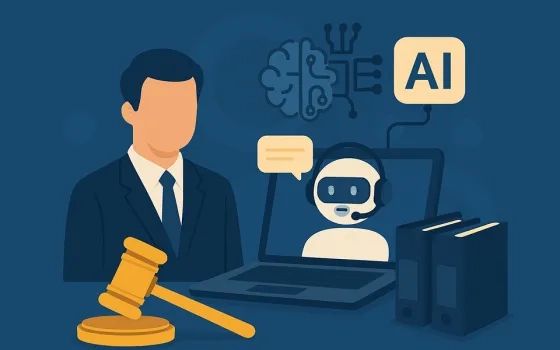What will organizations do after completing digital transformation? Is it done thing? Or must do
more? A question in everyone’s mind
Let us find answers to these questions but before that let us read few paragraphs to understand what is Digital Transformation and the organizations that tasted success after digitizing
What is Digital Transformation
Digital Transformation is a buzz word used by every organization these days. Businesses of all sizes seem to have understood that they would loose and may become non-existent one day if they miss the digital train. Therefore, organizations are ensuring they have a digital strategy and have started their digital journey
Digital Transformation is the application of technology in the business to increase productivity, efficiency, and effectiveness. The Digital Transformation helps companies bring their products faster into the market, drive growth, increase customer satisfaction, reduce operational costs, improve product quality leading to increase in sales, earnings, and gross margins
Digital Transformation Success Stories
Let us look at success stories of companies that digitally transformed their business
- Nike
Nike, multinational company engaged in footwear, apparels, sports equipment, and accessories, is one of the first companies which believed that future is digital and has made long strides in digitizing the company. In 2017, Nike took strategic and bold decisions to reduce its distribution partners from 30,000+ to 40 and diverted to “Direct- to-Consumer” strategy to increase the sales, margins and keep brand value
Over the years Nike has created a brand of itself, its products are associated with lifestyles of athletes, celebrities. It realized that their products would be undifferentiated if sold alongside other brands in a retail store hence took the decision to reduce partner footprint and went in with digital first strategy that linked their ecommerce shopping with their in-store experience, and focused on data-driven business model
In 2017, Nike nicknamed its digital transformation plan as “triple double strategy” to double on innovation, speed to market, and direct connection points to customers over the next five years. They outperformed their targets. With a plan to achieve a 33% lift in direct-to-consumer sales by 2022, they hit that target and kept growing by 2019
Continued focus on brand, Direct to Customer Sales through e-commerce, heavy investments in going digital over the last few years, helped Nike be pandemic biggest winners. The Nike market share doubled during pandemic with stellar quarter on quarter performances
- Disney+
Disney Plus is an American subscription video on-demand over-the-top streaming service owned and ran by The Walt Disney Company. Walt Disney, Entertainment company producing films and TV series, has been in the market for close to 100 years now. It has a huge popularity worldwide. When Netflix, a digital native, video-on- demand online streaming service started, its instant hit in the market with growing subscriber base sent shock waves to other traditional entertainment powerhouses like HBO, 21st Century Fox and others including Disney.
Though Disney licensed its content on Netflix and had an ongoing revenue stream, Disney realized that Digital is the future. Sensing this market shift, Disney launched Disney+ (Disney Plus) in Nov 2019, digitized its 100 years of content online. Disney+ reported 26.5 million subscribers by the end of 2019, a year later its subscription rose to
94.9 million subscribers as of January 2, 2021, that is a 265% increase in one year. The super impressive subscription growth clearly shows how digital transformation is enabling Disney to capture the media market
- Audi
Audi, based in Germany, designs, engineers, manufactures, and distributes automobiles. Audi is the first automobile company that underwent digital transformation which has revolutionized the automobile industry. Audi changed the way in which companies sell vehicles, with the introduction of an innovative showroom concept launched in 2012 named Audi City.
Audi City is a modern, high-tech digital car showroom where virtual, life-size cars display on massive screens, buyers use touchscreen panels to change the specification and build their perfect car. After Audi City launch in London, the sales in this region went up by 60%
Audi is leaving no stone unturned in venturing into all aspects of digitization. Whether it is autonomous driving, smart factories it is making large investments to systematically digitize its processes and use digital services to open up new business models and sales opportunities
Post Digital Era
A professional sprinter after winning a race does not stop there. He or She knows that they cannot continue the winning streak if they sit and relax. The sprinter knows that his or her profession is extremely competitive, new talents with more endurance and speed would continue to emerge and can overthrow them. Therefore, the sprinter continues with his or her practice sessions, seeks advice from his coach, finds ways to improve his or her performance to be competitive.
In the comparable way, organizations which digitally transformed the operations, backend apps and customer experiences and have seen success through increase in sales, revenues and profits must continue to evolve and incorporate the new technological advancements in their business to keep competitive advantage and differentiate themselves from their competitors. That is to say that digital transformation is a continuous process, therefore, it is impossible for businesses to ‘complete’ transformation or ‘declare’ that digital transformation is done
Gartner says Continuous NEXT is the formula for success through digital transformation and beyond. It names 5 key areas for companies to implement a Continuous NEXT strategy
- Privacy
Consumer data protection and trusted digital connections is of paramount importance to business. Any security breach or misuse of data will have devastating impact on the business.
In the recent years, we have seen governments enacting new data privacy laws or amending the existing privacy laws with more stringent requirements like GDPR (General Data Protection Regulation) – data protection and privacy in the European Union, Australia Privacy Act, Personal Data Protection Bill (PDPB) in India] that organizations must be compliant, failing to do so will have financial repercussions
Therefore, Organizations must continue its investments in enhancing security, and have a system in place that can detect and promptly report security breaches, and ensure that individuals have control of their data and be compliant with country specific privacy laws
- Augmented Intelligence
Augmented Intelligence is the next step beyond Artificial Intelligence. In Augmented Intelligence the human intelligence combines with Artificial intelligence to give more impactful and new meaning to a job. For instance, in contact center industry, the human agents are leveraging the power of artificial intelligence to provide enhanced customer experience
- Culture
Organization must have a dynamic culture to enable Continuous Next. Organization culture often become a single most barrier in its digital journey. It is not enough if top leadership is convinced of digital strategy and undertake digitizing its business, the leadership has the responsibility to do clear messaging from time to time down the chain and ensure that the employees buy in to the strategy. In the post digital era, organizations and its employees must be flexible to adopt to a constant change to deliver continuous value and create a differentiation
- Digital Product Management
Customers today have become more demanding of products and services. In the digital world, keeping pace with the unique demands of customers’ needs a product mindset. Faster time to market with continuous updates that match customer requirements is necessary to succeed. To meet these growing customer expectations, Enterprises must modernize their core systems and have a well-established agile practice for product development with fungible workforce for this kind of product delivery
- Digital Twin
Our world is changing at an incredible pace, powerful digital technologies are emerging giving opportunity to increase efficiency, optimize the operations across the entire supply chain, and add safety, reduce costs, and change people's life for the better.
Digital Twins can play a significant role in this transformation journey. Digital twin acts as a virtual mirror that uses real-time data in the physical world to provide insights into a real-world asset, process, systems, how people work, and how work moves from one department to other in an organization. Gaining visibility into how the physical world behaves in different simulated conditions organizations can enhance business processes, improve decision making, drive continuous innovation and rapidly deliver new demands
Conclusion
The post digital era will be exciting and engaging. It offers tremendous opportunities and value for business. Enterprises must continue the path of strengthening trust and keep innovating, and their success depends on the ability to deliver personalized experiences and services to its customers, employees, and partners. The post digital success mantra is to apply technology to understand customer needs and deliver them swiftly


















